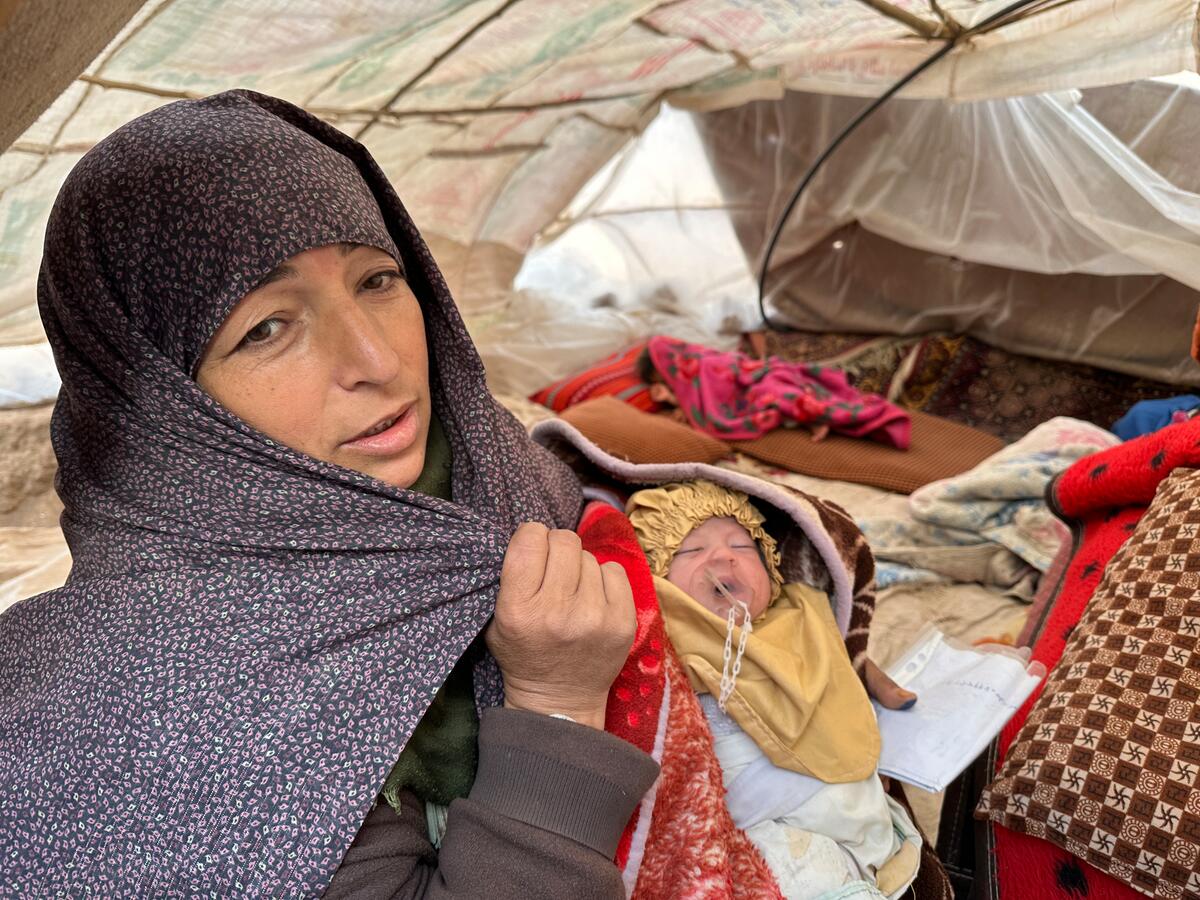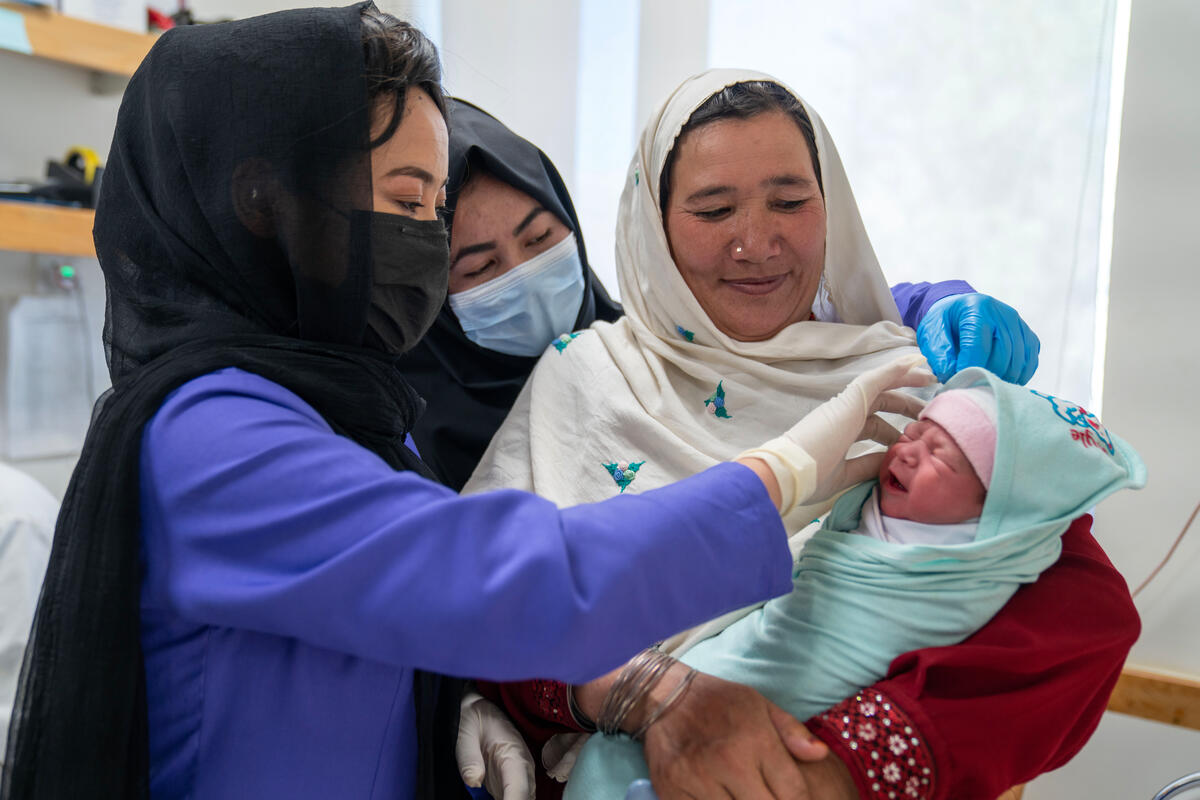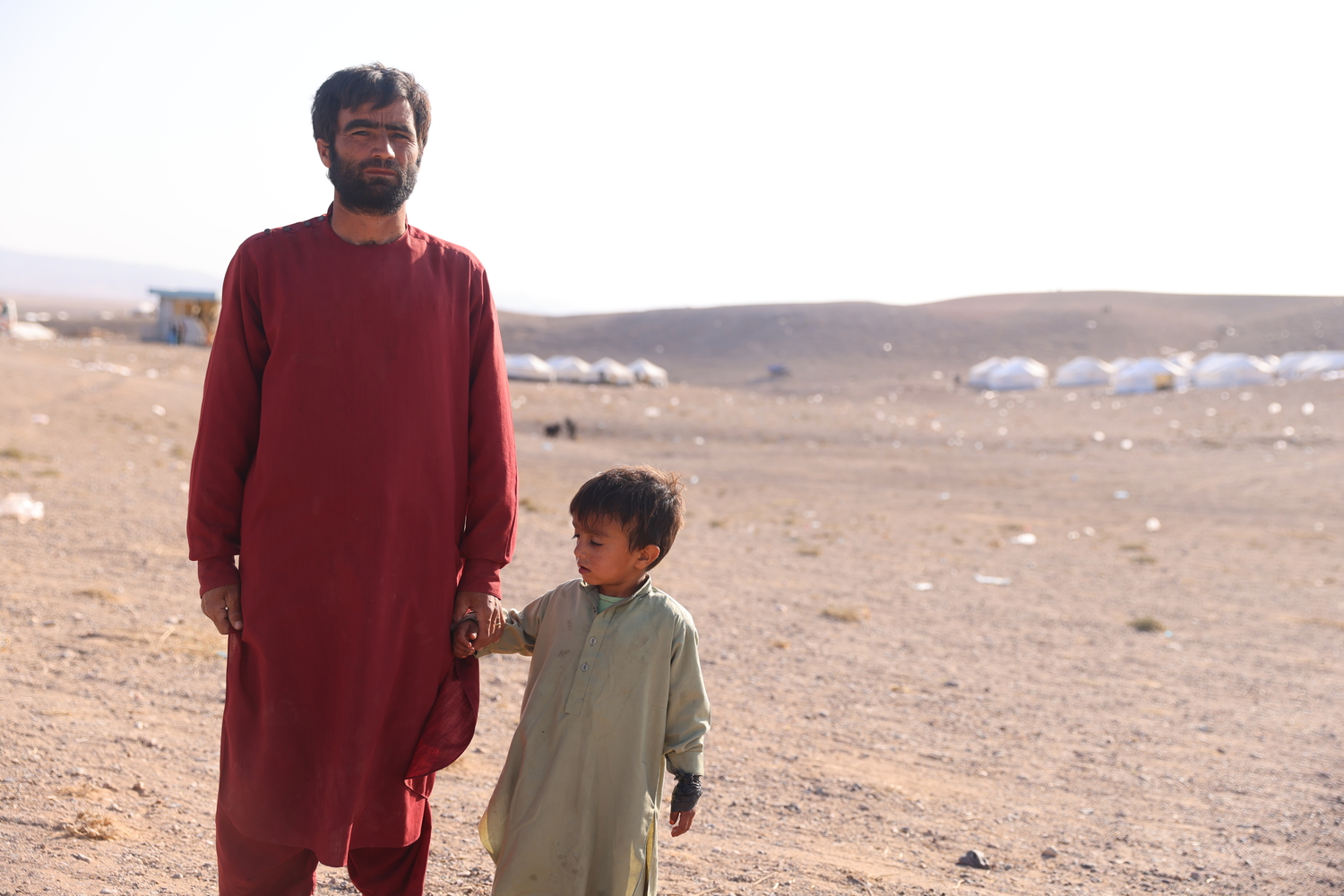Afghanistan Humanitarian Update No. 53
Afghanistan Humanitarian Update No. 53
15 February 2002
At a Glance:
- Repatriation preparations in full swing
- Increasing number of Afghans seek aid, safety
Repatriation preparations in full swing
UNHCR's preparations to step up assistance beginning from March 1 for spontaneous returnees going back to Afghanistan are in full swing. Starting in two weeks, the UN refugee agency this year plans to assist up to 1.2 million Afghans returnees - refugees in Iran and Pakistan as well as internally displaced persons still in Afghanistan - who want to go back to their home communities.
While UNHCR will help those who decide on their own to return to Afghanistan, the country's fragile security situation and the continuing effects of drought and a devastated economy mean that the UN refugee agency cannot yet actively promote large-scale, organized repatriation. Still, in the last six weeks more than 143,000 Afghans have opted to spontaneously return from Iran and Pakistan.
For those who opt to go home, UNHCR will open seven voluntary repatriation centres in Pakistan, each with a capacity to process 5,000 people a day. The first centre is slated to open March 1 in Tartabek, on the outskirts in Peshawar. It will be followed by the opening of three more centres elsewhere in North-West Frontier Province, two in Baluchistan Province, and one in Karachi.
UNHCR will recruit up to 250 persons to staff the centres, which will be located near major routes leading towards Afghanistan and where the returning Afghans can have access to clean water, sanitation facilities, medical care and, if necessary, where vulnerable cases can be accommodated overnight.
In Iran, UNHCR and the government this week surveyed ten sites where similar registration centres will be established to process spontaneous returns. They also examined locations on the border where three special exit points are being constructed ahead of the planned start to the joint operation set for April 1.
This week, UNHCR and the Iranian government finalized plans to rehabilitate one site at Dogharoun, on Iran's eastern border with Afghanistan's. UN refugee agency staff based in Mashad also visited Dogharoun this week to examine supply, transport, and warehousing needs ahead of the kick-off of the UNHCR-facilitated return programme set to start from Iran in less than six weeks. Among the three planned border exit points located along Iran's 900-kilometre border with Afghanistan, Dogharoun is expected to serve as the primary crossing point.
As in recent years when UNHCR similarly facilitated returns to war-torn Afghanistan, the refugees will hire their own transport homewards, stopping at one of the voluntary repatriation centres in Iran or Pakistan for registration purposes before crossing the border.
Once inside Afghanistan, the returnees will approach one of UNHCR's encashment centres that will be located along the main entry points, where they will receive a cash grant of up to $100 for a family of five to cover their travel expenses.
In addition, the UN refugee agency has contracted with the German relief agency GTZ to establish distribution centres in each of Afghanistan's 32 provinces. There, the spontaneous returnees will receive a three-month supply of wheat flour from the World Food Programme and a UNHCR repatriation kit containing two plastic tarpaulins, two jerry cans, two blankets, a lamp, 15 bars of soap, hygienic material for women, a sleeping mat and a tool/agricultural kit.
UNHCR and its partners are now positioning basic components for the returnee kits in Kabul, Jalalabad, Kandahar, Herat, and Bamiyan. The UN refugee agency is also forwarding items to the first of 16 distribution centres already established ahead of the March 1 kick-off in Asadabad (Kunar Province), Mohmud Raqi (Kapisa Province), Charikar (Parwan Province), Maidan Shah (Wardak Province), Ghazni (Ghazni Province), Faizabad (Badakhshan Province), Taloqan (Takhar Province), Kunduz (Kunduz Province), Mazar-i-Sharif (Balkh Province), Zaranj (Nimroz Province), and Mehgariam (Laghman Province).
Down the line, UNHCR plans additional assistance to some returnees who may need to rebuild their homes. The agency has begun the procurement of pre-treated timber beams for shelter kits, with the first deliveries expected May/June. Meanwhile, similar beams are already being procured locally.
Despite the still precarious security situation inside Afghanistan, once the repatriation operation steps up next month, UNHCR expects demand to be quite high.
Since January 1, an average of more than 3,100 Afghans have opted to return daily. Mostly males, these spontaneous returnees appear to be headed homewards to check employment opportunities and the readiness of their communities to receive at least some of the millions of Afghans who are outside their homeland. The majority of these recent returnees are from among Afghanistan's ethnic minority groups. Many are educated, indicating a possible boost for Afghanistan's war- and drought-shattered economy.
Increasing number of Afghans seek aid, safety
Despite the recent, positive signs for a strong spontaneous repatriation to Afghanistan this year, over recent days UNHCR has seen an increasing number of Afghans fleeing the country reporting a lack of relief aid, banditry and insecurity in remote areas.
UNHCR staff at Chaman, along Pakistan's frontier with southern Afghanistan's Kandahar Province, report that truckloads of Afghans seeking aid, but also complaining of security problems, have been arriving at the border.
In addition to the some 30,000 people who have been registered at UNHCR's new camps in the Chaman region of southern Pakistan since January 1, over 10,000 new arrivals are currently camped at the edge of UNHCR's Killi Faizo transit site. UNHCR staff at the frontier report seeing home-made tents pitched at the edge of the no-man's-land stretching as far as the eye can see, as well as seeing many people without any shelter at all.
Pakistani authorities at the frontier have been extremely co-operative in recent weeks. UNHCR has been continually shifting these new arrivals, who are mostly Pashtuns, to its new sites further inland that now shelter more than 135,000 people who entered Baluchistan since September 2001. In the meantime, UNHCR has also been providing the new arrivals with biscuits and water as well as blankets while they await registration at Killi Faizo.
About half the new arrivals say they come from the Kandahar region, while the rest are arriving from areas in northern Afghanistan like Mazar-i-Sharif and Kunduz. Many of them are Kuchis, a nomadic Afghan tribe. While relief agencies have reopened their offices in Kandahar, agencies have reported encountering the same security problems that are, in part, driving these Afghans to flee.








